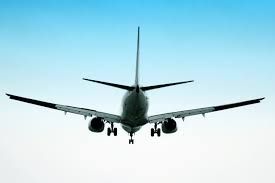Domestic carriers’ fuel bill to fall by Rs 1,200 cr in second half of 2014-15 With state-owned marketing companies reducing the prices of aviation turbine fuel to Rs 59,943 a kilolitre from December 1 -- 4.1 per cent lower than the previous month -- domestic airlines’ fuel bill in the second half of 2014-15 is estimated to come down by a combined Rs 1,200 crore (Rs 12 billion).
With state-owned marketing companies reducing the prices of aviation turbine fuel to Rs 59,943 a kilolitre from December 1 -- 4.1 per cent lower than the previous month -- domestic airlines’ fuel bill in the second half of 2014-15 is estimated to come down by a combined Rs 1,200 crore (Rs 12 billion).
ATF for domestic carriers has become 11.22 per cent cheaper since October and is expected to see more price cuts in the next three months.
According to estimates by the Centre for Asia Pacific Aviation, fuel costs could fall by an average 15 per cent in the January-March period.
So, the average decline in fuel bill the last six months of the financial year could be 12-13 per cent.
Since ATF accounts for over 50 per cent of domestic carriers’ operating costs, this implies a substantial six per cent fall in their costs during the period.
Airlines had bought Rs 18,674 crore (Rs 186.74 billion) worth of ATF for domestic flights last financial year.
Given that net profit margin over revenue of IndiGo, India’s most profitable airline company, was only 2.85 per cent for 2013-14 -- down from 8.3 per cent in 2012-13 -- the reduction in ATF prices could prove a major boost for its bottom line and margins.
According to analysts, IndiGo consumed about Rs 5,500-crore (Rs 55-billion) worth of fuel last year.
Supposing its consumption pattern to be the same as last year and its other costs to remain the same, the ATF price decline could add Rs 350 crore (Rs 3.5 billion) to the company’s bottom line.
For SpiceJet, Jet Airways and Air India, the price cut would mean a substantial reduction in losses.
SpiceJet, for instance, had a fuel bill of Rs 3,252 crore (Rs 32.52 billion) in 2013-14.
If it consumes the same amount of ATF as last year, it would save around Rs 200 crore (Rs 2 billion) on fuel cost in the October-March period.
That would help it reduce its losses (Rs 1,003 crore or Rs 10.03 billion last financial year).
However, there already are demands that airline companies pass on the benefit to consumers by reducing fuel surcharge in line with the fall in ATF prices.
“Oil prices have been falling for the past four months and we feel the benefit should be passed on to customers. Airlines should reduce fuel surcharge,” said D Sudhakara Reddy, president of the Air Passengers Association of India.
But experts say the reduction in ATF prices could bring the much-needed turnaround to the aviation industry.
Capa’s India head, Kapil Kaul, says: “Subject to a sensible fare regime, we could see the beginning of a turnaround for Indian carriers, with oil prices softening, rupee remaining range-bound and the economy likely to grow around six per cent from next financial year.”
The benefits will be visible and give investors the confidence to bring more capital, Kaul adds.
Domestic carriers say their fares have already come down between October and December.
“Fares now are 20 per cent lower than in October; those for flights up to seven days away have seen a sharp drop.
"You can get a one-way ticket to Mumbai from Delhi at under Rs 7,000.
"I don’t see what we can pass on,” says a senior executive of a leading Indian airline.
International routes, though, might see some fare reduction, as Air India is considering lowering fuel surcharge.
That is unlikely to happen for domestic flights.
“The aviation industry in India has been under stress. The price correction was required and will allow airlines to recoup losses.
"Input costs are still high and fares are driven by competition, and not cost. Fare reductions can be considered if airlines are able to break even,” an Air India executive says.












 © 2025
© 2025